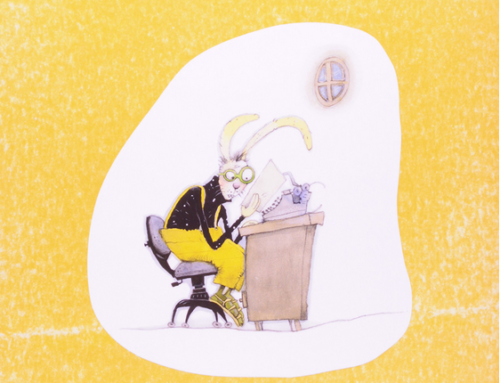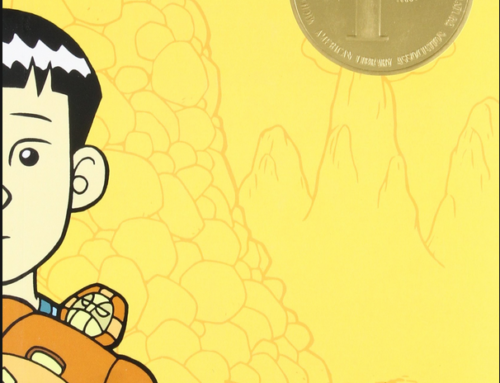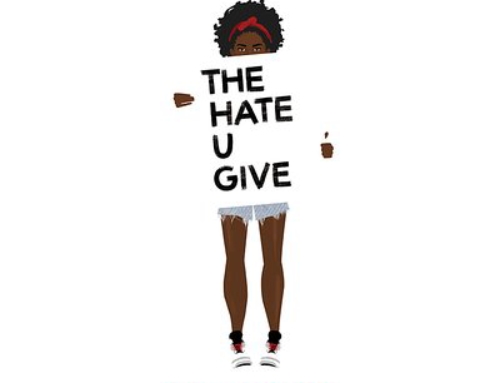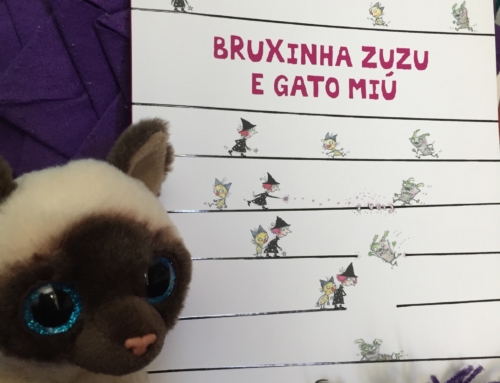 I recently asked my husband what his favorite books were as a kid and without hesitation he said “O Gênio do Crime.” He couldn’t remember the author’s name, but he remembered in detail an ingenious system the kid detectives invented to tail a very tricky criminal. My husband remembered this book instantly after forty years, and it wasn’t about ancient Rome.
I recently asked my husband what his favorite books were as a kid and without hesitation he said “O Gênio do Crime.” He couldn’t remember the author’s name, but he remembered in detail an ingenious system the kid detectives invented to tail a very tricky criminal. My husband remembered this book instantly after forty years, and it wasn’t about ancient Rome.
I had to read it.
Writing a story that stays with a child for the rest of their lives, that’s the dream for children’s authors. João Carlos Marinho solidified his place among Brazil’s greatest children’s writers with the 1969 publication of O Gênio do Crime. It became an instant bestseller and is currently #49 on Amazon Brazil’s fiction list.
Before I go on, I regret to say that I can’t find an English or Spanish translation. A fluent Spanish speaker would have no problem reading the Portuguese text, but as far I can discover, there’s no way for a non-Portuguese speaker to read the 49th most popular book in Brazil. Which is a shame.
 The kids of São Paulo are on the verge of an uprising when the company manufacturing soccer trading cards stops awarding prizes for collecting because of counterfeit cards being mass produced in the city. (It’s possibly the most Brazilian crime ever.) The police have yet to find this “gênio do crime” (genius of crime), but Edmundo, Pituca, and Bolachão are determined to succeed where the police have failed and ensure the kids of Sao Paulo can continue collecting cards and prizes.
The kids of São Paulo are on the verge of an uprising when the company manufacturing soccer trading cards stops awarding prizes for collecting because of counterfeit cards being mass produced in the city. (It’s possibly the most Brazilian crime ever.) The police have yet to find this “gênio do crime” (genius of crime), but Edmundo, Pituca, and Bolachão are determined to succeed where the police have failed and ensure the kids of Sao Paulo can continue collecting cards and prizes.
It’s a thrilling adventure for three friends that takes them on chases and stake outs and even undercover as they try to discover the location of the illegal factory. The method the kids invent to follow one of street sellers, which my husband remember forty years later, is brilliant and how fun is it to read about kids outsmarting the grown-up criminals.
But I don’t know if I want my daughter to read it for one simple reason, epic fat shaming.
I know ever book is a product of the time and place it was written. I know that a group of ten-year old boys communicate and express friendship differently than a group of ten year old girls. I still cringed repeatedly throughout the book.
Bolachão is overweight, and his friends never let him forget it. The tease him relentlessly even after Bolachão asks them to stop. He’s repeatedly referred to by the omniscient narrator as “o gordo”, which I’d translate as fatty. The character is defined primarily by his size and then by his intelligence, because Bolachão is the genius of the group and the one who solves the mystery. But the reader doesn’t know how smart he’s until about six chapters into the book. Whereas his weight is made clear from the first sentence.
I talked to my husband about it. As I did not grow up a boy in Brazil, I was curious how close the the friend’s banter was to reality. Very close is what he told. Pretty mild actually. There’s a saying in Rio, “The only people never booed in Maracanã (the soccer stadium) are the Pope and Frank Sintra.” Meaning those “super friendly” Brazilians the world hears about can be harsh. According to my husband, boys and men tease mercilessly. It doesn’t matter who you are, as nobody is perfect, your friends will find that not perfect thing about you and never let you forget it, but you’re expected to give it back to them. If you don’t tease or get teased, then you aren’t among personal friends.
Ok. I get that. However, Bolachão is harassed to a much greater extent the either of the other boys. Even the adults refer to him as “Fatty”. It’s pretty clear that for the characters being overweight is a far more serious offense the any other flaw. And haven’t we learned more about the psychology of kids and come to understand behavior that was commonplace even twenty years ago is in fact really damaging and standards for behavior should be changed?
Does that mean we never read books written in different eras or cultures because they might offend us? Do I deny a father-daughter bonding moment by forbidding my husband to share one of his favorite childhood books with her? When everyone else her age has read it because it’s the 49th most popular in Brazil, do I tell her no?
So the simple review I wanted to write about a famous Brazilian kid’s book has turned into a complex analysis of how to judge a book written in a different time and culture when it is very problematic by my personal standards.
The one thing I’m sure about is that I would NOT give this book to a child struggling with body image. Nope. Not under any circumstances. The fat shaming in this book is intense, and while it’s a fun story, I wouldn’t consider it required reading.
As for our home, and this could change because I’m still in the midst of an active internal debate, I’ll apply the same policy for reading Huck Finn. When she’s old enough, I’ll read it with her and we’ll talk about it. I think it’s important for kids to know how people acted in the past and compare it to today, but this requires an adult to lead the discussion.
What do you think? Have you read O Gênio do Crime? How do you feel about popular older books that are problematic by today’s standards? Like I said, it’s something I’m thinking about and would love to hear other opinions.






Hi Brynn, i agree with you. The name calling is harmful, and unfortunately, very prevalent in children’s books from my time. we considered it normal then, what in part explains why Brazilians are either oblivious about race and gender issues or plain resistent when facing it. It took me some time to understand the bias behind it, and today I feel very cautious when Choosing books for my kids. I am sure u know Monteiro Lobato, oneof our greatest childrens author. His books were racist, as he was in real life (i know it now). However, reading him was part of my childhood, and i wanted to read it with my son, so I bought “caçadas de Pedrinho” ( about hunting). I was very pleased to see a preface to the new edition explaining that hunting was ok many years ago, but today, due to environmental concerns, it isn’t anymore. So it was a nice talk besides the story itself… nice text, great topic!
I think you make a really great point, Karina, about resistance to acknowledging problematic children’s books. It’s hard to admit something you loved as a kid is in fact problematic and maybe you shouldn’t share it with your own children. We want to share our favorite experiences with our own kids, but I hope we learn and get better at respecting the feelings and opinions of people different from ourselves than previous generations (because let’s be honest, previous generations kind of sucked at respecting people who were different).
I’ve heard about how racist Lobato was and how it showed up in his stories. We did something similar as you by buying a short illustrated excerpt from Picapau Amarelo that focuses just on the two kids and a small adventure with the doll Emilia. I’m definitely going to check out your recommendation Caçadas de Pedrinho. I like the chance to discuss how we’ve become more aware of our responsibility to the environment over time. Thanks so much for the rec!
Can I provide a different interpretation? Maybe “gordo” in this case isn’t an insult, just a statement. Fat-shaming is only shaming when we think there is something inherently wrong with being fat.
I found Brazil to be quite liberating in that people will happily refer to themselves as fat or chubby without embarrassment – I remember a student calling herself “gordinha” (little fat) with an impish smile on her face. And not only fat is used to describe people: white people are “Gringo” or “Alemão” in a group of darker-skinned Brazilians, just like the black or Indio guy will be the “Negrinho” in a group of white-skinned Brazilians. Again (generally of course) without prejudice or shame.
In a similar vein, I read a Chinese book a few years ago and cringed every time the cripple was called exactly that “Hey Cripple”. However, from the context of the book it seemed like this wasn’t an insult. (Anyone with more contact with Chinese culture is welcome to correct me!)
So maybe this book is a way to teach that yes, Bolachão (Big Biscuit, for those non-Portuguese speakers) is fat, and yes, people notice it and yes, maybe calling people by their most prominent physical feature isn’t always tactful, especially in the States and UK but that at the end of the day, people come in all shapes and sizes and it is okay to be fat, skinny, chubby, muscular, lean or anything in between?
First, thank you so much for sharing your thoughts and giving a different point of view. Thinking about your comments and my response has really helped to solidify and look for justifications for my own feelings. I also love how a book can open the door for discussion of so many larger topics. Yay reading!
I agree completely that what is considered offensive in one culture might be acceptable in another, which is what makes reviewing and recommending books written in a different culture from your own difficult. At the same time, we can’t extend cultural relativism to the point we give a pass to harmful behavior, and I think this book could be harmful to a young person, even a young Brazilian, struggling with body image.
Here’s a controversial position of mine. I don’t think Brazil is the bastion of body acceptance so many claim it to be. I have debated this topic with Brazilians and expats in Brazil many times. The common argument given for Brazil’s acceptance of all body types is the fact that women of all sizes wear tiny bikinis to the beach. But that’s just standard beach wear. Americans don’t get to claim we’re accepting of all body types because bigger women wear skinny jeans and yoga pants on a regular basis. A person wearing typical attire can absolutely still get shamed in other areas of life. How many larger women in Brazil are in novellas? Are anchors on the evening news? Are talk show hosts?
Brazil has the second highest number of cosmetic procedures performed annually in the world, behind the US. In fact, Brazil has a higher per capita rate for specifically surgical procedures than the US, making it number one in the world for plastic surgery. A country with so much plastic surgery cannot be a beacon of body acceptance. I don’t want to shame people for having plastic surgery, but for the sake of my daughter I have to ask, why do so many people in Brazil and the US feel their own body is not good enough? If there is truly no shame in body shape and size why all the surgery?
I also would not assume that “gordinha” or “Negrinho” are not hurtful to the people they refer to. I was an opinionated and loud teenage girl. I embraced the title of “ice bitch” because I knew it would be hurled regardless. It was a self-preservation strategy. By adopting the nickname before it could be given as an insult, I softened the blow. That doesn’t mean it didn’t hurt. I totally believe there are some people who do not care in the least about being called “gordinha” (chubby), but is that true for everyone? Do those who are hurt by the term feel free to speak up and ask people to stop it? Or are they worried about getting harassed for being too sensitive? Do they put up with the name because they don’t want to be accused of not knowing how to take a joke?
I’d also say the power dynamics related to race in Brazil do not make a white person being called “o alemão” (the German) equivalent to a black person being called “negrinho”. (Why is the diminuitive “inho” applied to the black nickname but not the white? These distinctions matter.) While the majority of people in Brazil identify as mixed race or black, the overwhelming majorities of elected positions, wealth, property, and positions of authority such as CEOs or judges, are controlled by white people. Constantly identifying someone by their darker skin is to constantly point out they are not a member of controlling group.
But let me come back to O Gênio do Crime. That’s what the post is about after all. Does it qualify as fat shaming? Should I recommend the book? I agree that fat-shaming only occurs if there is something negative in being fat, and by that definition, this book has ample of amounts fat shaming. More than once Bolachão asks his friends to stop teasing him. In one passage, a friends goes on about how he can’t understand why a cute girl likes Bolachão because he is so ugly. Bolachão is the only person always (and almost exclusively) identified by a physical trait. Even though he is called a genius by pretty much every character, he’s never identified by his intelligence or personality. His weight is referred to constantly. All the time. To me that sends a pretty clear message. If you’re a large person, it’s so outside the norm expect to have your size brought up as the subject of jokes, as a point of discussion, as your primary identity all the time. All. The. Time.
Wow, so this response might be longer than the actual post. I seriously have been thinking about this for over a week now because I want so badly to be able to recommend such a classic book from Brazil. It’s a fun adventure. And I always come back to the fact I’m not Brazilian and despite living here for ten years, I do not react to these names and stories as a Brazilian. I react with an American cultural framework and maybe it really is no big deal here. However, I don’t think even a Brazilian can dismiss the teasing as harmless if they are not or have never been on the receiving end of “o gordo” or “gordinha”.
There’s also the whole thing about the book being from a different time. Do we ditch all old books because they’re problematic by today’s standards? I think “Of course not!”, but then I think of this book in the hands of a kid struggling with body image and I cringe. Agh! I don’t know! Life is complicated. But books are awesome and make us think! Yay books!
Yes yes yes. I agree with everything you say.
I realise that bringing a race/nickname question took the whole discussion to a new level that perhaps isn’t necessary or even helpful when talking about fat shaming.
The moment I hit “send” I also remembered that bolachao asks NOT to be called fat and yet his friends continue.
The “gordinha” vs cosmetic surgery dichotomy is also fascinating to me because, yes, Brazilians DO go on looks very much (I was once horrified by the vapid interview given by one of Brazil’s main female news anchors…all gigles and flirting with the guys). BUT BUT BUT: as a woman with, erm, larger thighs, for the first time in Brazil I felt my shape was acceptable. And whereas I often found back in Europe fat immediately = unnattractive, it felt like in Brazil women were quite okay with the idea that a man might like a tubby girlfriend.
Of course microscopic view of a whole country.
In summary, my personal decision is to read books from all times, with all sorts of cultural views and use them as starting points for discussions with my children. They’re going to run into fat shaming or comments based on their image at some point, so best to start talking about it with the safety of a book